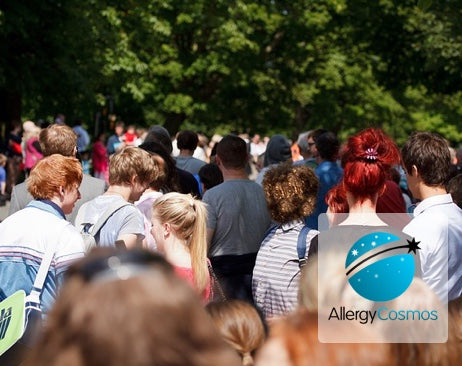Is there a way to prove that I’m more allergic to air pollution than other people?
When it comes to air pollution and asthma, it may indeed be the case that you are more allergic to air pollution than other people. It has long been known that exposure to air pollution, both indoors and outdoors, is a potent trigger for asthma attacks among those people who already have asthma. What was not known was whether air pollution is also a primary cause of asthma.
But a new review of the evidence from the Committee on the Medical Effects of Air Pollutants (COMEAP) suggested that exposure to air pollution generated by traffic (and by lorries and trucks in particular) may play a role in causing asthma among a number of people who now suffer with it. So if you live near a busy road you can develop asthma as a result of exposure to high levels of traffic pollution. If so, you will be more allergic to air pollution than someone who has avoided being exposed to high levels of air pollution.
But besides becoming allergic to air pollution, there are other health impacts from exposure to air pollution that recent research has shown to include:
- Increased mortality from heart and lung disease
- Increased hospital admissions and ill health from heart and lung disease
- Worsening lung function
- Lung symptoms such as wheezing, coughing, infection
- Worsening of chronic obstructive pulmonary disease and bronchitis, as well as asthma
- Lung cancer
While there is no straight forward way, at present, to prove that youare more allergic to air pollution than other people are, this will likely be the case for children, older people, and anyone with pre-existing heart or lung disease, including asthma. You will know yourself if you feel worse in certain situations where significant air pollution is present, either outdoors or indoors.
The main cause of outdoor pollution these days is traffic and industry. Vehicle exhausts emit gaseous pollution (of which the most significant components are nitrogen dioxide and ozone) and Particulate Matter (PM) pollution. You can help control your allergy to air pollution by checking air quality readings online which will give nitrogen dioxide, ozone and PM readings. If the readings are high, you should try to plan your activities accordingly (avoid going outdoors, for example).
Indoor pollution is too often overlooked as a cause of ill health because most studies relate to people being allergic to outdoor pollution. However, you could be even more sensitive to indoor air pollution because levels of pollutants tend to build up in modern homes because they are often so well insulated in the interests of energy efficiency. (Modern homes are often compared with living in a plastic bag). Two of the indoor pollutants which may affect your health are nitrogen dioxide and formaldehyde. All of these will be significant triggers for your allergy to air pollution.
Nitrogen dioxide is a product of combustion and is produced by both motor vehicles and by gas appliances found in the home. Formaldehyde, a Volatile Organic Compound (VOC), is a gaseous pollutant released by foam-backed carpets, wood composites (MDF - Medium Density Fibreboard) and other every day/DIY products. Other VOCs which may harm health may be found in various paints and solvents. To minimise your exposure to indoor air pollution and better control your allergy to air pollution, make sure to use a high-quality air purifier that effectively filters out particle as well as gas pollution. You should also shop carefully for products that do not function as a trigger for your air pollution allergy – check labels to be sure they are low (or no) formaldehyde or VOC and don’t use outdated stock. Another useful tip for lowering levels of indoor air pollution is to make sure your home is well ventilated – open windows, especially after cooking, showering or bathing. If you are especially allergic to air pollution, this could make a difference.
Click here for the best:




